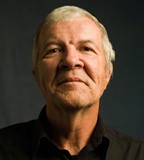Opponents: Exonerations show death penalty should be banned
by April 11, 2017 5:55 pm 808 views

Since 1973, 157 individuals occupying death rows across the country have been exonerated and set free, and that doesn’t include Arkansas’ most famous former Death Row inmate, Damien Echols.
The Death Penalty Information Center, an anti-death penalty organization that compiles statistics and information, lists 157 individuals exonerated since 1973, none from Arkansas, because they were acquitted at retrial, their charges were dropped, or they were pardoned by the governor based on new evidence of innocence. The most recent was in January. Meanwhile, there have been 1,448 executions since 1976.
After a favorable Supreme Court decision, Gov. Asa Hutchinson on March 6 set execution dates two at a time over an 11-day period starting April 17 and ending April 27.
• April 17: Don Davis, Bruce Ward;
• April 20: Stacey Johnson, Ledelle Lee;
• April 24: Marcel Williams, Jack Jones; and
• April 27: Jason McGehee, Kenneth Williams.
However, the State Parole Board on April 4 recommended the governor grant clemency to one of the condemned, Jason McGehee. On April 6, U.S. District Court Judge D. Price Marshall ruled in federal court that there must be at least a 30-day period before the Parole Board makes that recommendation. That would place McGehee’s execution past April 30, when the state’s supply of midazolam, one of three drugs used in its executions, expires.
‘NOT A COMFORTABLE MISTAKE’
Robert Dunham, executive director, said the list is “underinclusive” and made of those who are “unquestionably exonerated,” meaning his organization believes other innocent people are imprisoned or have already been executed. He points out that for every 10 executions, one person has been set free after being wrongfully convicted.
“That is not a comfortable mistake rate when you’re talking about a process that is to determine whether a person should live or die. We can’t afford to be wrong that frequently,” he said.
One of the “West Memphis 3” convicted of murdering three boys, Echols was released from prison in 2011 after making an “Alford plea,” where the defendant pleads guilty but maintains his or her innocence. Echols, Jessie Misskelley and Jason Baldwin were released from prison in 2011, 18 years after the murders, as the cases against them weakened with new evidence. Technically, the state did not consider the three “innocent” even as it set them free. Because of that Alford plea, the Death Penalty Information Center doesn’t count Echols in its list, either.
Echols is scheduled to return to Arkansas Friday to participate in a rally at the State Capitol against the scheduled executions of eight individuals. Also, the Arkansas Coalition to Abolish the Death Penalty will deliver to Gov. Hutchinson Tuesday (April 11) a letter signed by more than 200 clergy members opposed to the executions.
Legal challenges continue as Gov. Hutchinson reviews case files of the convicted. Attorney General Leslie Rutledge promises a vigorous defense of the state’s processes. Her spokesman, Judd Deere, said, “Attorney General Rutledge supports the death penalty and believes it is past time for the victims’ families to see justice for the horrible murders of their loved ones. This office will respond to any and all challenges that might occur between now and the execution dates. The attorney general continues to expect that the executions will proceed as scheduled.”
Thirty-four men are on Arkansas’ death row. The last inmate executed was Eric Nance, for the murder and attempted rape of Julie Heath of Malvern in 2005. Nance had six prior felony convictions after raping and beating two Oklahoma girls in 1982.
Support for the death penalty remains high in Arkansas. In a recent Talk Business & Politics-Hendrix College survey, 61% of respondents supported the death penalty while 29% said life without parole should be the maximum punishment. Meanwhile, 51% said they supported the accelerated schedule this month, while 26% opposed it.
Nationwide, the average length of time between sentencing and exoneration is more than 11 years, according to the Death Penalty Information Center. Four were exonerated after only one year, while Ricky Jackson and Wiley Bridgeman spent 39 years in prison after they were wrongfully convicted and sentenced to death along with Kwame Ajamu for a murder in 1975.
‘WITNESS TO INNOCENCE’
Gary Drinkard spent six years on Death Row in Alabama after being convicted in 1995 for a robbery-homicide based on testimony from his half-sister, who faced unrelated charges. Despite having alibis with witnesses, the jury convicted Drinkard and sentenced him to death.

“When they took me out of courtroom, they carried me back to the jail in a holding area and about 45 minutes later I went straight to Death Row,” he said in an interview.
For the next six years, Drinkard spent 23 hours a day in a five-foot-by-eight-foot cell with bars covered by a heavy screen mesh outside. The cell consisted of a toilet, a bed and a little reading desk. He purchased with his own money a 13-inch television with an antenna for local channels, he read books, and, one hour a day, he and his fellow Death Row inmates had time together in an exercise yard. While fights were common in other parts of Holman Correctional Facility, Death Row inmates largely got along well, he said. The cell did not have air-conditioning and would reach 120 degrees in the summer, so to cool off, he would pour water on the concrete floor and lie in it. Inmates were allowed to purchase 20-inch box fans until one hung himself with the cord and they were taken away, though they were returned.
Drinkard was given a second trial based on prosecutorial misconduct and was acquitted. He walked out a free man, but a changed one. Convinced he would never leave prison, he said he had instructed his wife to divorce him and find someone else to raise their children, and she had. He said he went to school to become a respiratory therapist but couldn’t get a job because of his record. Now he’s an anti-death penalty activist who speaks four or five times a year, including recently in Little Rock. He’s also a member of Witness to Innocence, a group composed of 37 active death penalty exonerees along with family members.
Dunham said others who are innocent remain on Death Row, while others have been executed. The Death Penalty Information Center lists 13 executions since 1989 where the evidence of innocence is especially compelling. Those include Ruben Cantu, who was executed in 1993 and whose prosecutor now opposes the death penalty because he believes an innocent man was executed, said Dunham. Another, Cameron Willingham, was executed in Texas in 2004 after his three daughters died in a house fire prosecutors said he set. The DPIC says the science that seemed to tie the fire to arson since has been repudiated.
“Cameron Willingham is a classic case of someone executed without a crime ever having occurred,” Dunham said.
Dunham said one of the challenges with righting a wrong on Death Row is the high standard for reversing the conviction. If the evidence shows a juror might reasonably still convict, the inmate won’t get a new court date.
“Once you are convicted, the evidentiary threshold to prove your innocence is almost insurmountable,” he said.
